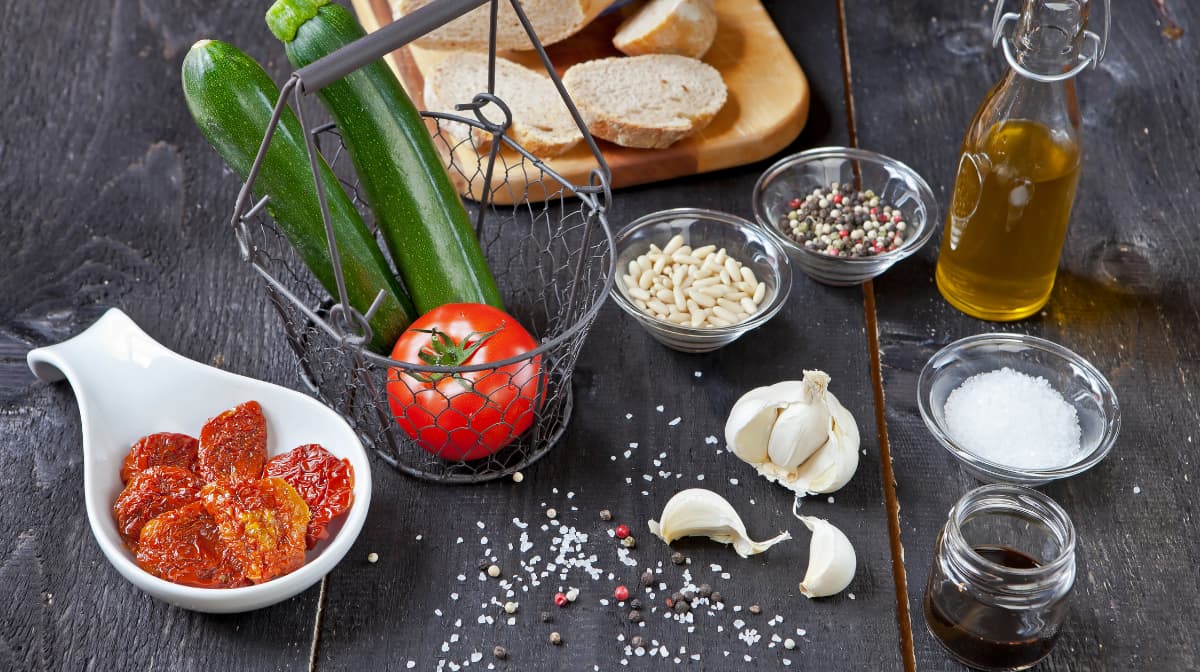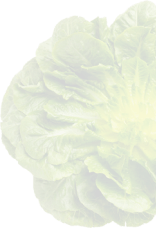

What You Should Know About Mediterranean Cuisine
Mediterranean cuisine is one of the most admired culinary cultures with its famous flavours all over the world. As the name suggests, Mediterranean cuisine, which is based on the taste of different communities living around the Mediterranean, has unique flavours. However, Mediterranean cuisine, which has a deep-rooted history as well as spreading over a very large and wide geographical area, also contains countless diversity within itself.
Intersection of Different Cultures: Mediterranean Cuisine
Mediterranean cuisine, olives, menemen, peppers, kebabs, wraps
Mediterranean cuisine is undoubtedly a flavour culture that includes the products of the interaction between the Mediterranean countries. Therefore, it can be claimed that Mediterranean cuisine has emerged from the products produced by all communities living within the borders of the Mediterranean from past to present, thanks to the fertile soils and mild climate.
Since the Mediterranean is a point where Asia, Europe and Africa continents intersect, it has served as a trade centre throughout history. Therefore, it was seen that food products also changed hands during many cultural exchanges. This interaction shaped the Mediterranean cuisine. Even when one civilisation overthrew the government of another community, Mediterranean cuisine managed to be passed down from generation to generation as a cultural heritage.
The dishes and culinary practices that blended with various cultures and formed today’s understanding of Mediterranean cuisine eventually formed the flavours that spread its fame all over the world. So what made these flavours so important? If you wish, let’s get to know this culinary culture that has managed to spread all over the world by examining the characteristics of Mediterranean cuisine.
Features of Mediterranean Cuisine
In this culinary culture, which is largely shaped by the Mediterranean climate and the geography of the region, it is possible to see that vegetables and fruits specific to the Mediterranean are predominant. It would certainly not be wrong to claim that olives, which are one of the Mediterranean fruits, are the main element of Mediterranean flavours both in fruit and oil. Considering that olives are exported to the whole world by Mediterranean countries, everything will become much more meaningful.
On the other hand, despite such common points, there are also some regional differences. Considering the historical development of Mediterranean cuisine, which is analysed in three major regions as Eastern Mediterranean, Southern Europe and North Africa, these differences can be considered quite normal. In this sense, for example, yoghurt and feta cheese are widely used in the Eastern Mediterranean, which includes Turkey, Greece, Syria, Lebanon, Palestine and Egypt. Similarly, flavours such as parsley, sumac, mint and lemon juice are among the flavours that characterise Mediterranean dishes.
Southern European cuisine, which includes Italy, Southern France and Spain, can easily stand out from Eastern Mediterranean cuisine with its distinctive features. In this culture, where goat and lamb meat is abundant, tomatoes, garlic, capers, mustard, pine nuts and pineapple are common.
When it comes to North Africa, we can see that there is an abundant use of spices. It is known that especially cumin, coriander, saffron, cinnamon, cinnamon and red pepper are widely used in North African cuisine, which includes Morocco, Algeria, Libya and Tunisia. In addition, dried fruits such as apricots and grapes are frequently used in meals. We can say that lamb, sheep, goat and chicken meats are the dominant flavours as meat products in North African dishes.
Foods that Give Life to Mediterranean Cuisine
Mediterranean cuisine, which contains healthy flavours as well as delicious, contains foods that are extremely rich in vitamins and minerals. In fact, experts point out that people who eat a Mediterranean-type diet live longer. Thanks to their light eating habits, Mediterranean people are much less likely to suffer from cardiovascular diseases, cancer, diabetes and obesity.
When the Mediterranean cuisine, which makes a healthy and balanced diet possible, is analysed, it is seen that especially olives and wheat play a major role. It is known that these agricultural products have been grown and used in the region since the early periods of history.
Olive
As we mentioned before, due to its geographical conditions, the Mediterranean is the region with the highest olive production. This naturally indicates a high amount of olive oil consumption. Olive oil, which is one of the main raw materials of healthy meals, is used in almost every food in the Mediterranean cuisine, almost like a sauce.
Wheat
Wheat, one of the main elements of the Mediterranean climate, is the raw material of bakery products such as pasta, couscous, pita bread, bread, etc., which are the most popular flavours of Mediterranean cuisine. These flavours are served as an accompaniment to almost every meal and you can also see them served as a separate dish with vegetables, fruits, cheese and meat products.
Other Flavours Commonly Used in Mediterranean Cuisine
In addition to olive oil and wheat products, we can say that Mediterranean culture includes a large number of vegetables and fruits as well as cereals, meat, dairy and seafood. Other regional products that give life to Mediterranean cuisine can be listed as follows:
Fresh Vegetables
Fresh vegetables and fruits are commonly found in Mediterranean cuisine. However, these products, which are consumed in season, are served fresh as well as roasted, sautéed or pureed in meals. Thus, it is prevented from losing the essence of vitamins during cooking. Tomato, cucumber, lettuce, onion, artichoke, aubergine can be considered as the most consumed vegetables in this sense.
Sea Products
Fish and shellfish, which are an important source of protein in Mediterranean cuisine, are generally consumed by grilling or cooking in the oven. Among the seafood known to have many health benefits, salmon, sardines and tuna are the most popular in Mediterranean cuisine.
Meat and Dairy Products
One of the factors that make Mediterranean cuisine healthy is undoubtedly calcium-rich dairy products. As dairy products, it can be easily claimed that yoghurt and cheeses have an important place in Mediterranean dishes. In the meat group, it is possible to see that poultry and beef are preferred. Meat products are used as the main ingredient of the dishes as well as to add flavour to the dishes.
Spice
A wide variety of herbs grow in the Mediterranean Region. These herbs are sometimes dried to add flavour to the dishes and sometimes served fresh. Basil, thyme and rosemary are the main herbs that add unique flavours to Mediterranean flavours. In addition to these unique flavourings, spices such as black pepper, paprika, cumin, pine nuts and mint are also widely used.








